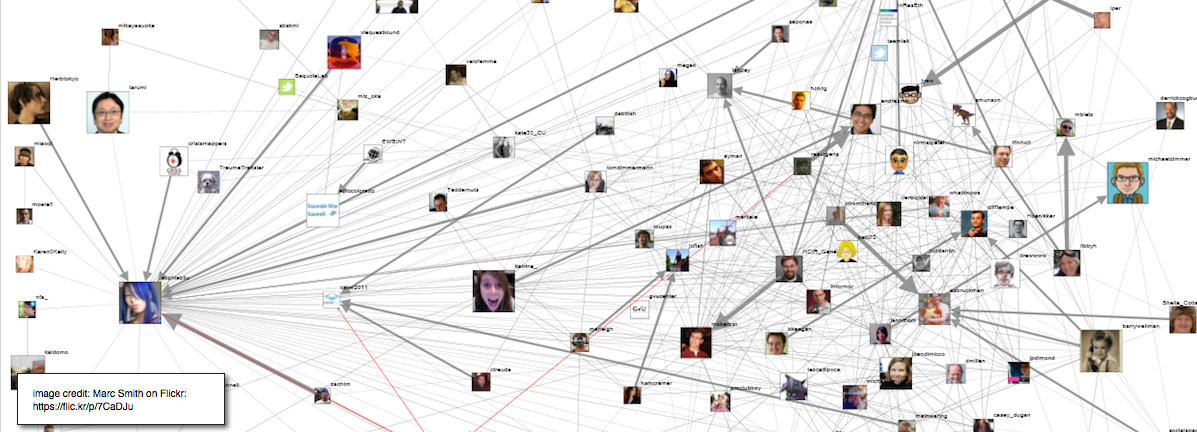Why webs for learning?
In designing the Teaching With WordPress course, we ran across a notion proposed by Stephen Downes that open course design should be more about creating a web than a website. The idea, as I understand it, is to create opportunities for cross connections between ideas, resources, people and their networks. The course is a connection point for people to share their thinking, ideas in progress, experience and learn from each other. We consider ourselves learners and teachers together.
This notion helped us make decisions about how to build in opportunities for people to connect with each other through comments, posts, tweets – inside and outside of the course hub. Many people connecting with #TWP15 seem to understand the value of connecting, sharing links, ideas and works in progress. Many of us subscribe to open practices and have had enriching experiences as we have exchanged with our growing and changing networks over time. Through practice, we’ve found deep and enduring value in those exchanges. We could relate to the idea of webs for learning mainly because our experiences helped us make the connection.
How do learners relate to/ connect with this vision for learning “webs”, networks and communities?
In my own conversations with a handful of very bright, motivated and sensitive learners lately, I have learned that their engagement with learning communities (associated with their formal learning courses) involve the following concerns:
- what the teacher wants: what requirements to I need to meet for discussion and “participation”?
- what the community offers: who knows what and what do I know that can help others?
- insecurities about self: online learning communities are big – it’s intimidating.
- how much time will I need to spend on this?
In short, the goal for many learners, is to maximize learning and make friends without the high cost of extra effort or public embarrassment.
So, I am thinking about this as I am considering whether/how we might use Twitter to connect learners between courses. I think appealing to the “maximizing learning” idea – may be a way in for some students. I want to pose three questions to students (and others who want to play):
* why would (or would) you contribute to an open, learning community/network online?
* how might an open, online learning community/network help you maximize your learning?
* what would you consider before using Twitter to connect with a learning community?
There may be other, more interesting, pertinent questions. If you have any, let me know.
I am starting an open G-doc to collect responses.
Further thoughts on trust, learning communities and our role as mentors and facilitators.
Amanda Hayden, grad student at CSU, Chico in California, posted an excellent and insightful video blog, where she shares some of her thoughts on barriers to and opportunities for the development of trust in a learning environment. She is my teacher for this piece. Some thoughts:
* institutional barriers to students developing own learning paths and practices. Students don’t trust themselves to “get it right” “learn what they need to fulfill a requirement”.
* teachers hold the power – as long as grades are currency – implications for peer assessment?
* vulnerability in learning – need to establish caring culture, mentor relationships with faculty, shared vulnerability.
* when students focus on self (and their own learning) it leaves very little room for creating meaning with peers.
* trust can happen quickly among students (think MMPOG). Needs: shared goals, reputation built on skill to help and support each other achieve goals.
Via my expanded Twitter network (thanks to #TWP15) I came across Laura Gogia, who shared this excellent resource on Twitter and learning – something I plan to propose to students as a resource for the blended learning course we are creating together.
I am thinking about my responsibility as a collaborator with students on the design of learning environments for their peers. I’m looking for approaches to scaffold networked learning and learning in the open.

